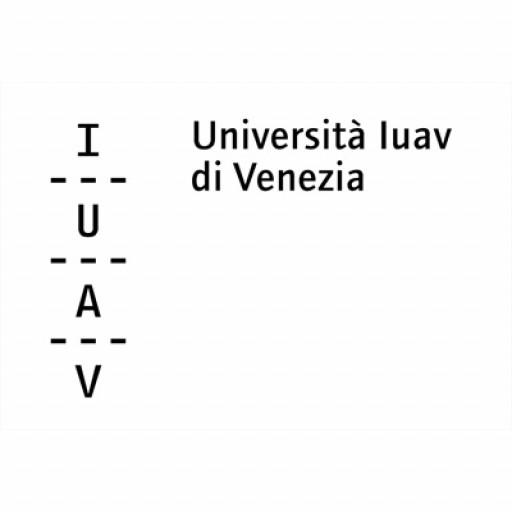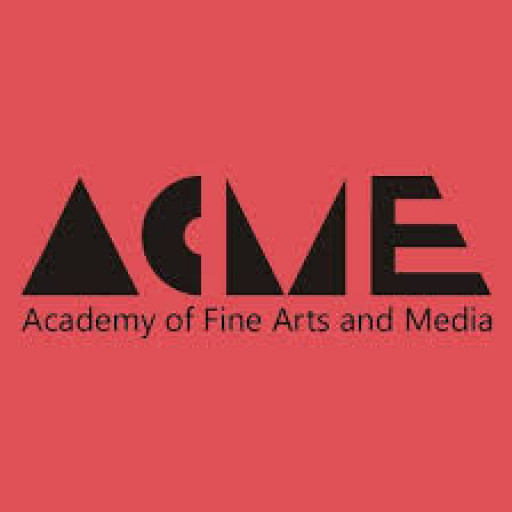Photos of university / #tallinnatehnikakorgkool
Degree Programme in Restoration at the University of Applied Sciences
The Degree Programme in Restoration offered by the University of Applied Sciences is a comprehensive and multidisciplinary course designed to prepare students for a professional career in the preservation and restoration of cultural heritage. The programme combines theoretical knowledge with practical skills, enabling graduates to work effectively in the fields of conservation, restoration, and heritage management. Throughout the course, students explore various aspects of cultural heritage, including historical architecture, sculptures, paintings, and other artifacts, gaining a deep understanding of techniques and materials used in restoration processes. The curriculum emphasizes sustainable practices and ethical considerations, ensuring that heritage conservation respects original craftsmanship and cultural significance. Students will engage in hands-on projects, internships, and collaboration with heritage institutions, museums, and conservation workshops, providing real-world experience. Courses cover topics such as material science, conservation technologies, art history, archaeology, and chemistry, fostering an interdisciplinary approach essential for successful restoration work. The programme also encourages critical thinking and problem-solving skills, preparing students to assess the condition of artifacts, develop conservation plans, and execute restoration treatments in compliance with national and international standards. Upon graduation, students will be equipped to pursue careers in museums, cultural institutions, restoration workshops, and heritage agencies, contributing to the preservation of cultural treasures for future generations. The University’s facilities include modern laboratories and workshops dedicated to restoration practices, ensuring students have access to state-of-the-art equipment and resources. With a strong emphasis on professional development, the programme also offers opportunities for networking, research, and participation in national and international conservation projects. Graduates of this programme will be well-prepared to meet the challenges of heritage preservation, balancing scientific approaches with artistic sensitivity to sustain the cultural legacy of diverse societies worldwide.
The Conservation — Restoration program at the University of Applied Sciences offers students a comprehensive education in the preservation and restoration of cultural heritage. Throughout this program, students gain in-depth knowledge of traditional and modern conservation techniques, including the analysis, documentation, and intervention processes necessary to preserve artworks, historical artifacts, and architectural structures. The curriculum emphasizes both theoretical foundations and practical skills, enabling graduates to work effectively in museums, galleries, restoration workshops, and cultural heritage institutions.
Students are introduced to a wide range of materials and their properties, such as various types of paints, varnishes, ceramics, and textiles, learning how to assess their condition and determine appropriate treatment methods. The program covers critical aspects of conservation ethics, legislation, and documentation standards to ensure responsible and professional practice. Participants also develop skills in research methodologies and scientific analysis, including techniques like microscopy, spectroscopy, and other analytical tools vital for diagnosing conservation issues.
Practical training is a key component of the program, with students engaging in hands-on projects that simulate real-world restoration tasks. This may include cleaning, stabilization, structural repairs, and surface retouching, always adhering to conservation principles aimed at preserving the integrity of the original work. The program encourages interdisciplinary collaboration, allowing students to work with experts from fields such as archaeology, art history, chemistry, and architecture to develop holistic solutions for complex conservation challenges.
Furthermore, students explore the latest innovations and sustainable practices in conservation technology. The program also prepares graduates for roles in cultural institutions, private conservation studios, and governmental agencies responsible for safeguarding cultural assets. By combining scientific rigor with artistic sensitivity, the Conservation — Restoration program equips students to make meaningful contributions to preserving cultural heritage for future generations, ensuring their historical and artistic significance endures through responsible conservation efforts.
Admission to the Conservation — Restoration program at the University of Applied Sciences requires applicants to possess a relevant secondary education diploma or equivalent qualification. Prior knowledge in art history, materials science, or related disciplines is highly advantageous. Prospective students must submit a completed application form, accompanied by academic transcripts, a motivation letter detailing their interest in conservation and restoration, and a portfolio showcasing previous work or relevant experiences. English language proficiency is mandatory, with accepted tests including TOEFL or IELTS, unless the applicant is a native speaker or has completed previous education in an English-taught program.
The selection process assesses academic performance, practical skills, motivation, and the potential for successful study in the field. Applicants may be invited for an interview or portfolio review to demonstrate their competencies and passion for the discipline. The program prerequisites include foundational knowledge of art history, an understanding of conservation principles, and basic manual skills related to handling artifacts and artworks. It is recommended that applicants have completed introductory courses in chemistry or materials science to facilitate understanding of conservation techniques and materials.
Once admitted, students are expected to fulfill specific coursework and practical training components, focusing on the preservation of cultural heritage, restoration techniques, conservation ethics, and contemporary challenges facing the field. The curriculum involves a combination of theoretical lectures, laboratory sessions, workshops, and hands-on projects, enabling students to develop both analytical and practical skills required for professional conservation work. Collaboration with museums, galleries, and conservation workshops is integral to providing real-world experience.
Graduates of the program will be equipped with comprehensive knowledge of conservation methods, an understanding of the materials and technologies used in restoring artifacts, and the ethical considerations inherent in the profession. They will also acquire skills in documenting, analyzing, and treating various types of cultural objects, including paintings, manuscripts, sculptures, and archaeological finds. Upon completing the program, students will be prepared for employment in museums, cultural institutions, heritage sites, or to pursue advanced studies in conservation. The program emphasizes sustainability, respect for cultural diversity, and adherence to international conservation standards, ensuring that graduates are well-prepared to maintain and restore cultural heritage responsibly and effectively.
The Conservation — Restoration program at the University of Applied Sciences offers a diverse range of financing options to support students throughout their studies. Tuition fees are structured to ensure accessibility while maintaining high academic standards. Typically, international students are required to pay a semester fee that covers administrative costs, student services, and access to campus facilities. Students may also be eligible for various scholarships based on merit, need, or specific criteria related to their background or field of study. The university collaborates with governmental and private organizations to provide scholarship opportunities, grants, and financial aid programs to assist both domestic and international students. Additionally, students can explore external funding options such as grants from cultural and heritage protection agencies, which are sometimes available for students specializing in restoration, conservation, and related disciplines. Part-time employment opportunities are also accessible nearby campus, enabling students to earn while studying and support their living expenses. Certain programs may also participate in work-integrated learning or cooperative education initiatives, which can include stipends or financial compensation. The university provides comprehensive guidance on applying for financial aid and navigating funding channels, ensuring students are well-informed about their options. Overall, the financial support framework aims to facilitate access to high-quality conservation and restoration education, encouraging talented individuals from diverse backgrounds to pursue their academic and professional goals without undue financial burden.
The Conservation — Restoration program at the University of Applied Sciences is a specialized course designed to equip students with essential skills and knowledge necessary for the preservation and restoration of cultural heritage. This program focuses on providing a comprehensive understanding of both theoretical and practical aspects of conservation techniques, material science, art history, and ethics involved in restoring artworks, artifacts, and historic structures. Students are introduced to various conservation methodologies, including assessment procedures, treatment planning, and intervention strategies aimed at prolonging the lifespan of cultural assets. The curriculum emphasizes hands-on training through internships, workshops, and fieldwork, enabling students to gain real-world experience in museums, restorations labs, and conservation workshops.
The program also addresses the importance of sustainable practices and environmental considerations in conservation projects. Students learn about the latest technologies and innovative tools used in the field, such as digital documentation, non-invasive analysis, and conservation materials. Collaboration with professionals from related disciplines like archeology, archaeology, architecture, and museology is encouraged to foster a multidisciplinary approach to conservation. Graduates of this program are prepared to work in a variety of settings, including museums, galleries, heritage management organizations, and private restoration studios.
The program emphasizes ethical standards and the importance of maintaining authenticity and integrity when restoring cultural artifacts. Graduates are trained to balance scientific insight with artistic sensitivity, ensuring that their interventions respect the original work's historical significance. The duration of the program typically spans three years for a Bachelor's degree, providing a solid foundational knowledge that allows students to pursue further specialization or advanced studies in conservation. The university’s faculty comprises experienced professionals and researchers dedicated to advancing the field of conservation through teaching, research, and community engagement.
Students benefiting from excellent facilities, including climate-controlled storage, advanced imaging and analysis equipment, and restoration workshops, gain practical experience in state-of-the-art environments. The program also encourages participation in national and international conservation projects, conferences, and networks, fostering a global perspective on heritage preservation. Upon graduation, students are well-equipped to contribute effectively to the preservation of cultural heritage, ensuring that future generations can appreciate and learn from historical artifacts and sites. Overall, the Conservation — Restoration program provides a balanced and rigorous education aimed at developing highly skilled professionals committed to safeguarding cultural heritage for the future.










